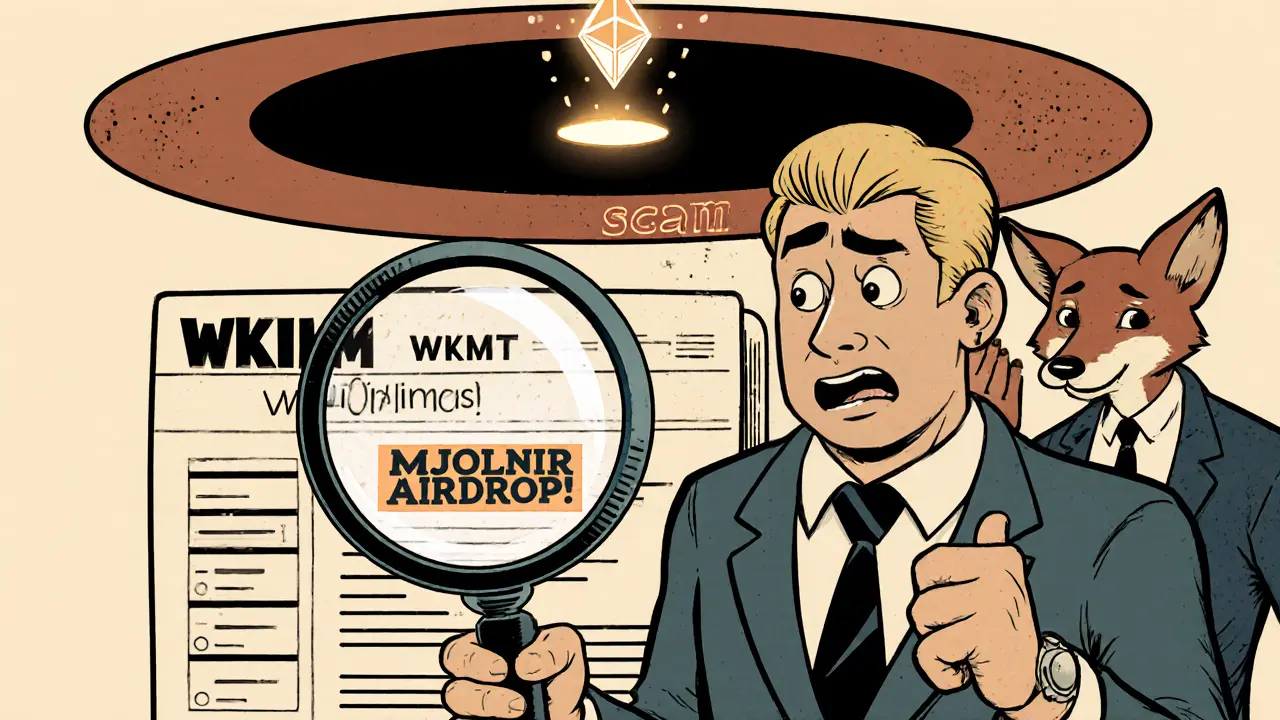KingMoney Airdrop: What It Is, Why It’s Likely a Scam, and How to Spot Fake Crypto Airdrops
When you hear about a KingMoney airdrop, a free token distribution promised by an unknown crypto project, your first thought might be: free money. But here’s the truth—most airdrops like this don’t exist. They’re designed to steal your wallet keys, not give you tokens. The crypto airdrop scam, a scheme that tricks users into connecting wallets to fake websites is one of the most common ways people lose crypto. No team, no whitepaper, no real website—just a Discord link and a promise of riches.
These scams follow a pattern. You get a tweet, a Telegram message, or a pop-up ad saying "Claim your KingMoney tokens now!" Then you’re asked to connect your MetaMask wallet. That’s it. No verification, no steps, no delay. And suddenly, your ETH, USDC, or whatever you had in there is gone. This isn’t rare. In 2024, over $420 million was lost to fake airdrops, according to blockchain security firms tracking wallet exploits. The fake token airdrop, a fraudulent distribution of non-existent tokens to lure victims works because it mimics real ones. Legit airdrops like the Convergence Finance x CoinMarketCap airdrop, a verified campaign offering 470 CONV tokens to users who completed simple tasks have clear rules, public smart contracts, and official announcements. KingMoney has none of that.
Real airdrops don’t ask you to send crypto first. They don’t pressure you with countdown timers. They don’t hide behind anonymous teams. If a project can’t show you its GitHub, its team members, or its audit report, it’s not worth your time. Even worse, some fake airdrops copy real project names—like WorldShards or FaraLand—to trick you into thinking they’re legit. You’ll see posts claiming "KingMoney is listing on Binance soon!" But Binance doesn’t list tokens without due diligence. And if you search for KingMoney on CoinMarketCap or CoinGecko? Nothing. Zero listings. Zero volume. Zero trace.
So what should you do instead? Stick to projects with public activity. Check their Twitter for consistent updates. Look for audits from reputable firms like CertiK or Hacken. If a token has no trading history, no team, and no roadmap—it’s not an opportunity. It’s a trap. The crypto scams 2025, a growing category of fraud targeting new crypto users with fake rewards are getting smarter, but the red flags haven’t changed. If it sounds too good to be true, it is.
Below, you’ll find real case studies of projects that promised free tokens—and then vanished. You’ll see how GDOGE, FEAR, and WHX airdrops turned into ghost towns. You’ll learn how to check if a token is real before you even click "Connect Wallet." And you’ll walk away knowing exactly how to avoid becoming the next statistic.
KIM (KingMoney) WKIM Mjolnir Airdrop: What’s Real and What’s Not
by Johnathan DeCovic Nov 15 2025 15 CryptocurrencyThere is no official WKIM Mjolnir airdrop from KingMoney (KIM). Claims of free tokens are scams designed to steal crypto. Learn how to spot the fraud and protect your wallet.
READ MORE
